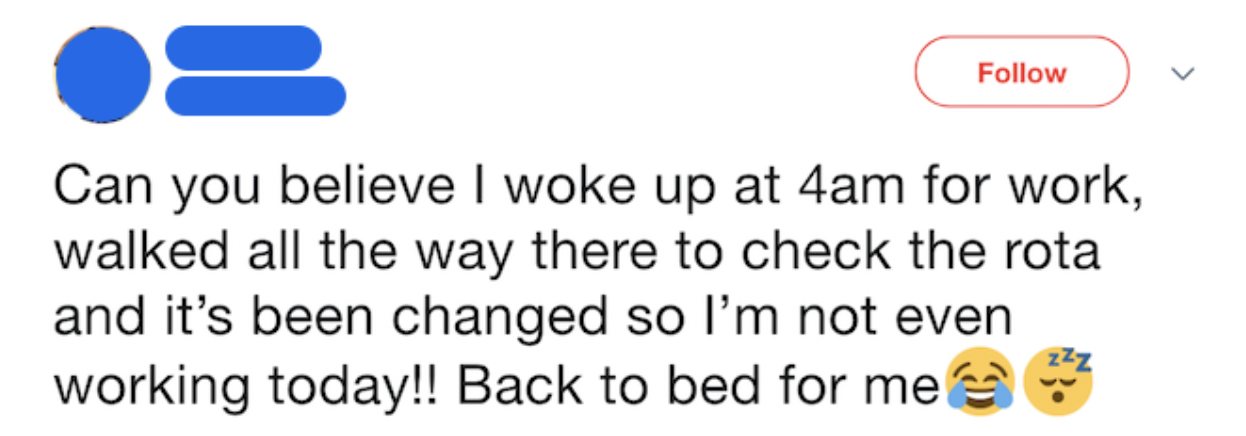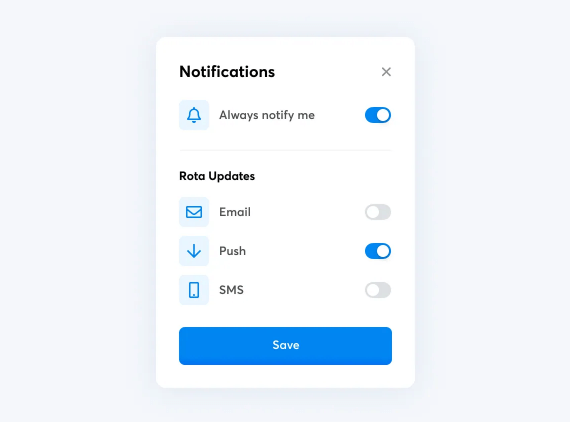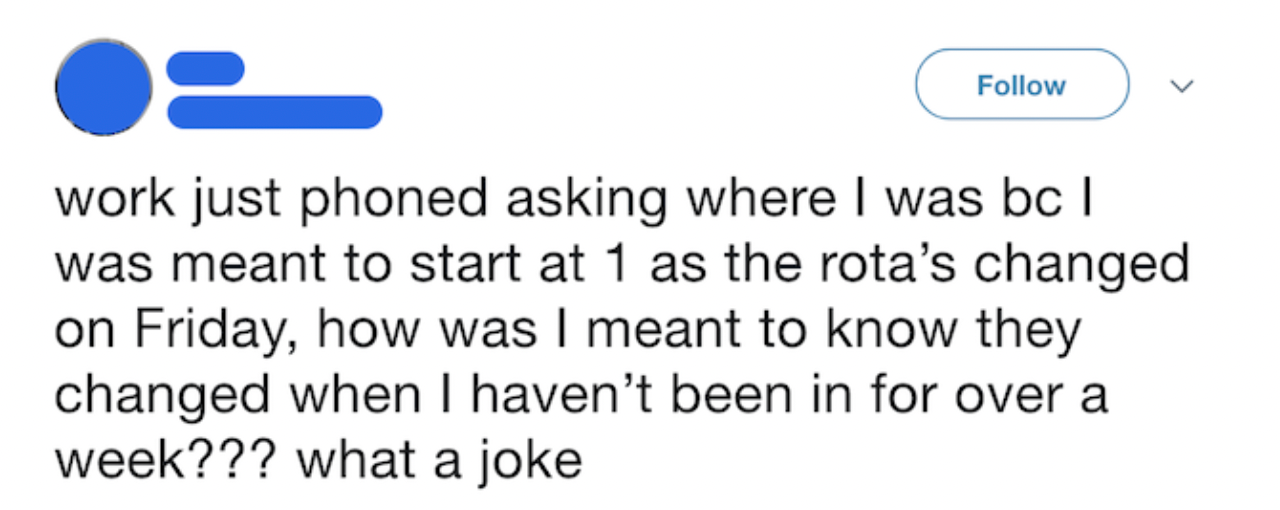While most managers and business owners appreciate the importance of planning and sharing their staff rotas well in advance, things often start to go wrong when they need to update the rota once it's been published.
Imagine if a large booking or order came in and you suddenly needed more hands on deck than you'd scheduled.
Perhaps a member of your team calls in sick or tells you that they can't work their shift due to a family emergency.
Even with all the planning in the world, most managers need to update their schedule at some point. And it's really important that any changes are quickly and effectively communicated to your team.
If they aren't, things can go wrong pretty fast...
The Complaint
"Well, of course I have to tell my staff if their shifts change!" you're probably thinking.
But when you've got customers to serve, rotas to plan, and books to balance, it can be easy to forget about things like calling up a member of your team to tell them that they're needed at work from 9am rather than 10am.
In fact, managers forgetting to tell their staff of shift changes is one of the most common complaints we hear about...





These tweets were posted just a few weeks apart, so communication breakdowns around the staff rota can clearly be a real issue.
And these breakdowns not only impact the lives of your employees, but the future of your business...

Communicate rota changes with a click
RotaCloud automatically notifies your staff via text, email, or push notification the moment there's a change to their schedule — so you can relax knowing that they're always in the loop.
The Fallout
The consequences of failing to properly communicate shift changes and updates range from the obvious to the unexpected. But all are likely to cause for concern for any business owner.
- Missed shifts. If a member of your staff doesn't know that they've been scheduled in for a shift, then they're not likely to be there. It's almost as if you never made a rota in the first place.
- Too many staff. Cancelled someone's shift but they showed up anyway? You're left with the choice of sending them home (annoyed!), or letting them stay and work regardless. If you choose the latter, you're paying two people to one person's job. And choosing the former isn't a good option for anyone.
- Frustrated staff. Imagine, like the writer of one of the tweets above, you'd just paid £15 for a taxi only to discover that you were no longer needed at work. You'd need to have the patience of a saint to not flip out completely.
- High staff turnover. With each shift not properly communicated, you increase the likelihood that staff will become so fed up that they'll look for work elsewhere (the tweet below is a case in point). This will put more demands on your time and resources as you're forced to hire and train new employees to take their place.
- Disgruntled customers. If one or more members of your team doesn't show up to work, it falls on you and the rest of your staff to fill the gaps. Can you do that without providing your customers with subpar service?


The Solution
A fair bit of damage can be done by not properly communicating rota changes to employees, but how can a manager or business owner ensure that their staff are always kept up to date?
Here are a few steps you can take:
- Decide on a system. While you should avoid making last-minute rota changes wherever possible, you should ensure that you at least have an established method for communicating any updates that have to be made— whether it's a phone call, a text message or an email.
- Stick to it. Shift changes happen, but the way you communicate those changes shouldn't. By always informing your staff in the same way, you can significantly improve the chances that they'll see the update in time for their shift.
- Publish rotas early. We've already discussed the importance of giving your staff plenty of notice of their shifts, but by publishing the rota well in advance you'll also have more time to make any necessary adjustments and communicate them.
- Have "on-call" staff. Rather than simply extending an employee's shift by a couple of hours in order to fill a gap in the rota, consider having one or two "on call" members of staff you can assign, and who expect to receive, additional shifts.
- Use a cloud-based rota system. Online platforms like RotaCloud sidestep the problem of staff being unaware of shift changes by sending out automatic notifications whenever a shift is changed. Plus, since rotas are stored online, it's impossible for employees to see anything but the most up-to-date version.
Final Thoughts
As a manager, you expect your staff to show up on time, ready to work. In return, it's your responsibility to give staff plenty of notice of their shifts and let them know whenever a change has been made.
Failure to do so will leave you shorthanded, and your staff so frustrated that they may start looking for work elsewhere.
Be the team player you expect your employees so be and ensure that every shift gets off to the right start by keeping your people in the loop. After all, if you make changes to your rota but don't properly communicate them to your staff, you might as well not have built your rota to begin with.
Looking for more tips for growing your small business? Check out the Business Growth section of our blog!







